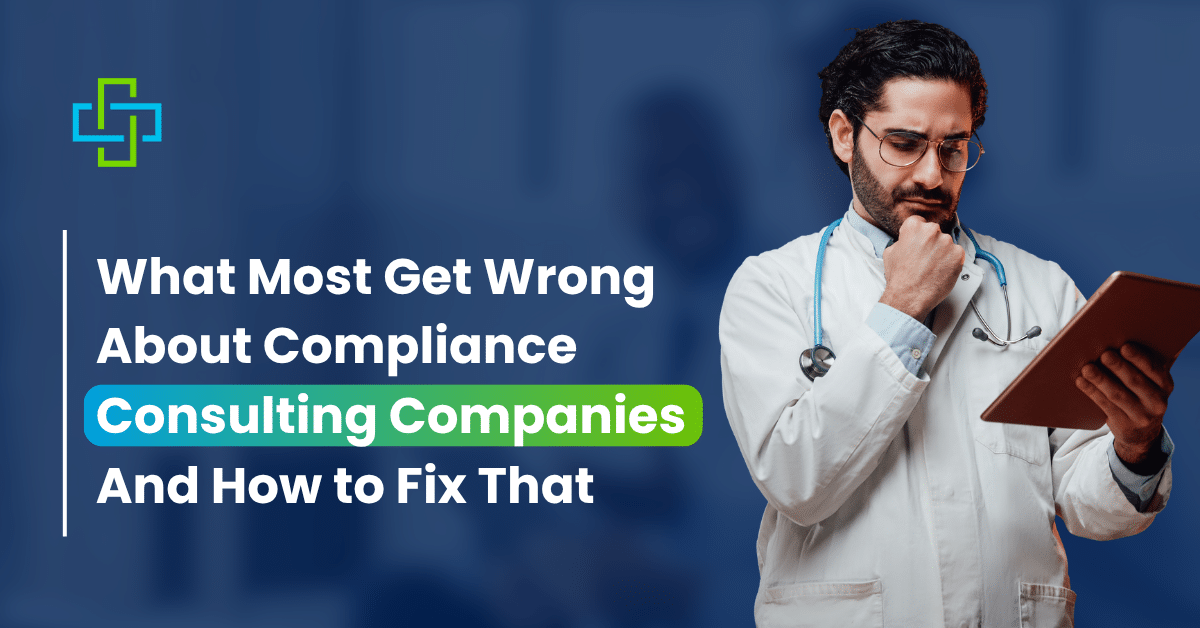Let’s be honest, not all compliance consulting companies are created equal. Some will charge you premium rates for generic advice you could find online. Others really know what they’re doing and can save you from regulatory problems that cost way more than their fees.
The problem is that most business owners have no idea how to tell the difference. They pick the first firm that sounds professional or go with whoever their lawyer recommended. Then they wonder why their services feel like expensive paperwork exercises.
Here’s what actually works, Finding compliance consulting companies that understand your specific industry, have dealt with your exact regulatory challenges and can prove they’ve kept other businesses out of trouble.
The High Price of Ineffective Services
Bad compliance consulting costs you in ways most people never think about. Sure, there are the obvious fines when you mess up. But that’s just the beginning.
When compliance consulting companies give you generic solutions, you end up with policies that don’t match your business. Your team either ignores them completely or wastes time on procedures that add zero value.
Worse, generic compliance management solutions often miss the specific risks that matter in your industry. You’ll be perfectly compliant with regulations that barely affect you while completely vulnerable to the ones that could shut you down.
The companies that get compliance right treat it like insurance. Boring, necessary and something you hope you never really need. The ones that get it wrong treat it like theater, with impressive binders full of policies nobody follows.
Why One Compliance Firm Works Better Than Another?
The best compliance consulting companies have war stories. They’ve been through regulatory examinations, helped clients during investigations and know what regulators care about versus what they claim to care about.
They also understand that compliance isn’t just following rules. It’s about running a business that can survive regulatory scrutiny without falling apart. Good consultants help you build systems that work for compliance and operations at the same time.
The firms that are worth hiring also stay current without making a big show of it. They know which regulations are being enforced, which ones are changing and which ones everyone talks about but nobody really cares about.
There’s More to Healthcare Compliance Than Meets the Eye
Healthcare compliance consulting looks straightforward until you dig into the details. HIPAA, Medicare billing, fraud prevention, state licensing requirements. It’s a mess that gets worse every year.
The challenge with services is that most consultants understand either the medical side or the regulatory side but not both. You need people who know how healthcare works, not just what the regulations say. Any compliance consulting companies you work with need to understand how to apply changes without disrupting patient care.
Technology and Data Privacy Are the Toughest Part of Compliance
Data privacy compliance is where a lot of compliance consulting companies are making stuff up as they go. The regulations are new, enforcement is inconsistent and nobody really knows what “best practices” look like yet.
GDPR was supposed to clarify everything but it mostly just created more confusion. CCPA made things worse by taking a completely different approach. Now you’ve got dozens of state laws all trying to regulate the same thing in different ways.
The compliance consulting services that help with privacy focus on building systems that can adapt as regulations change, rather than trying to predict what regulators will do next.
How to Spot Compliance Consulting Companies That Know What They’re Doing?
- Good compliance consulting companies can explain hard regulations in simple terms. If they need to use a lot of jargon to explain what you need to do, they probably don’t understand it themselves.
- They also focus on your biggest risks first. Good consultants help you prioritize based on what’s most likely to get you in trouble.
Look for services that have been through regulatory examinations with their clients. Theoretical knowledge only goes so far. You want people who know how these things work in practice. Compliance requirements that work for one type of company might be completely wrong for another, even in the same industry.
Technology That Helps (And Technology That Doesn’t)
Most compliance technology is sold to solve problems that don’t exist.
- You don’t need artificial intelligence to track regulatory changes. You need someone who knows which changes matter. The compliance management solutions that work focus on making existing processes more efficient, not replacing human judgment with software.
- Automated monitoring can be useful but only if someone who knows your business sets it up correctly. Generic compliance consulting companies often use monitoring systems that generate tons of false alarms while missing real problems.
The best technology integrates with how you already work instead of forcing you to change everything. If consulting services require you to completely restructure your operations, something’s probably wrong.
What You Can Expect to Pay for Quality Compliance Consulting?
Compliance consulting isn’t cheap but it shouldn’t be a black hole for your budget either. Good compliance consulting companies can give you estimates based on your specific situation.
- Hourly rates for consultants can start as low as $100 for freelancers or entry-level professionals.
- Experienced consultants usually fall between $150 and $500 per hour depending on their expertise and your location.
- Retainer arrangements work well if you need ongoing support. Monthly retainers often range from $5,000 to $20,000.
Choosing Between Local and National Compliance Consultants
- National firms have resources and brand recognition but they often assign junior staff to smaller clients. You might pay for senior expertise but get recent college graduates doing most of the work.
- Regional compliance consulting companies usually provide more personal attention and often have deeper relationships with local regulators. They also tend to be more flexible about pricing and engagement structures.
The choice often comes down to whether you need breadth or depth. If you operate in multiple states or countries, national firms might make more sense. If you’re dealing with confusing local requirements, regional specialists often work better.
Why Compliance Works Better With Industry-Focused Experts?
Generic compliance consulting companies claim they can handle any industry but regulatory requirements are too specialized for one-size-fits-all approaches.
Banking compliance is completely different from healthcare compliance, which is completely different from environmental compliance. The regulations, enforcement patterns and practical considerations don’t overlap much.
Our services focus on specific industries or regulatory areas. They might not be able to help with everything but they know their specialty.
This specialization also means they have relationships with the right regulators, understand industry practices and can provide references from clients who faced similar challenges.
Red Flags to Avoid in Compliance Solutions
Compliance consulting companies guarantee you’ll never have regulatory problems? Nobody can make that promise and the ones who try are usually selling snake oil.
Also avoid consultants who focus more on selling than listening. This services start by understanding your situation before proposing solutions.
Generic proposals are another red flag. If their recommendations could apply to any company in your industry, they probably don’t understand your specific risks.
Finally, watch out for compliance consulting companies that can’t explain their billing clearly. If you can’t understand what you’re paying for, you’re probably paying too much.
Working With Compliance Consultants Who Stick Around
Compliance is an ongoing requirement that changes as your business grows and regulations evolve. The compliance consulting companies worth building relationships with help you develop internal capabilities instead of creating dependency. They train your team, document their processes and gradually hand over routine tasks.
Good consultants also stay engaged at a level that makes sense for your business. You might not need monthly meetings but you want someone you can call when new issues come up.
Our Final Thoughts
Choose compliance consulting companies based on their track record with businesses like yours, not their marketing materials or fancy websites. Ask for specific examples of how they’ve helped other clients deal with regulatory challenges similar to yours. If they can’t provide examples (while maintaining confidentiality), keep looking.
Also make sure their approach matches your business culture. Some services work better with companies that like detailed documentation. Others work better with businesses that prefer streamlined processes. The right compliance consulting companies will feel like an extension of your team, not an expensive necessity you have to tolerate. When you find consultants who understand your business and make compliance easier, stick with them.
That’s exactly what we do at Prime Well Med Solutions. We help businesses simplify compliance, avoid costly mistakes and build lasting confidence in their operations.
May You Need to Read:
What Does a Compliance Consultant Do? All You Need To Know About It
Choose the Right Healthcare Compliance Software for Your Practice
The Role of AI Compliance Consulting in Transforming Healthcare 2025





